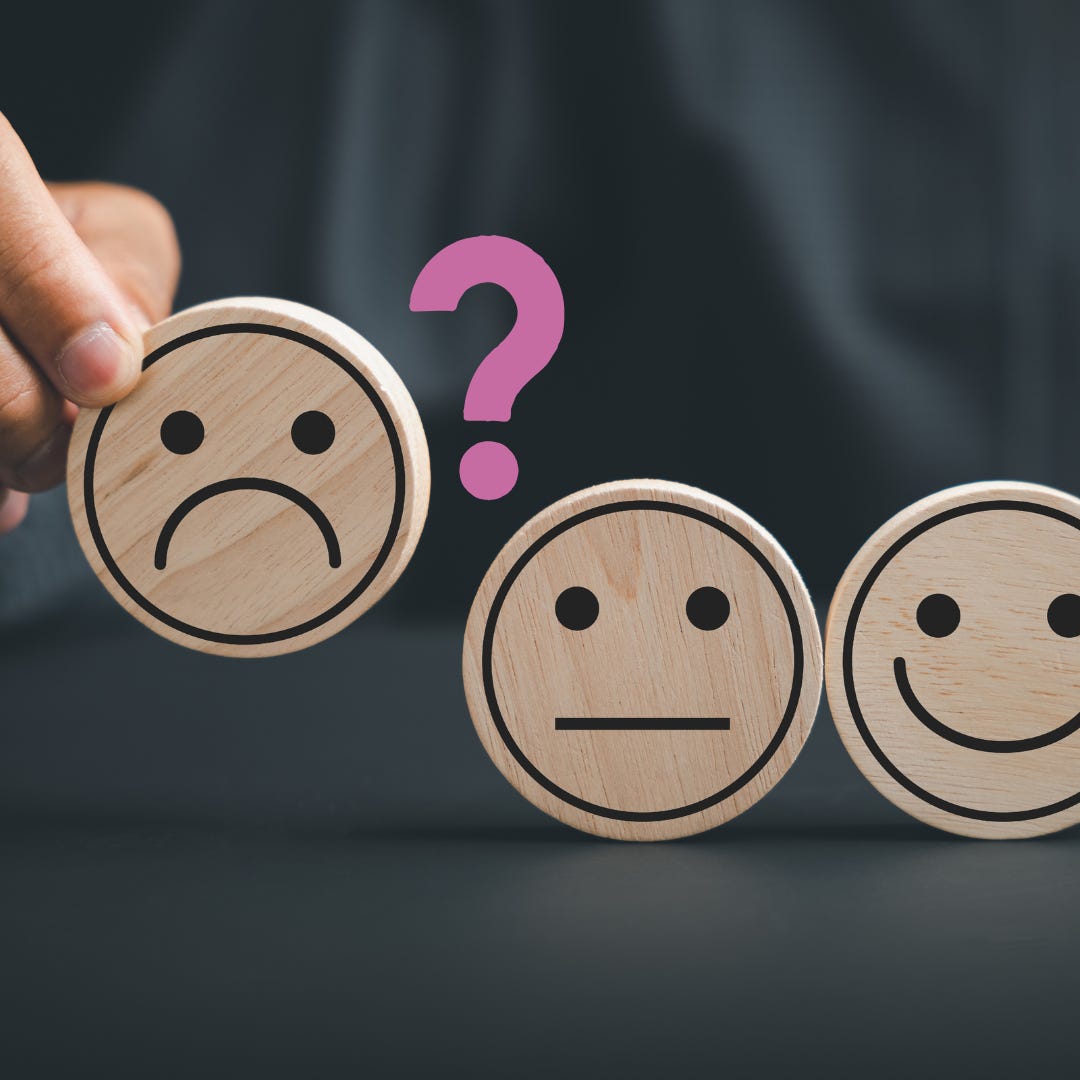Do My Songs Sound Better When I Hate Myself?
Freeing our best work through appreciation and commitment
For most of my life, I believed that harsh criticism of my singing, playing, and songwriting was the key to creating good work.
I grew up in a household where “if it’s worth doing, it’s worth doing right” should have been emblazoned on the family crest hanging on the wall. Paying attention to detail was trained into me and my sisters. Deviating from that norm meant punishment, shame, and an even colder shoulder than already common in our household.
While I participated in school and church choirs, and some community theater and singing programs, most of my guitar playing and singing skills were self-taught. The isolation left me with a nagging sense of inferiority that increased my tendency to hyper scrutinize any creative output.
It’s true that the ability to review and correct our vocal and instrumental technique plays a vital role in our capacity to grow as artists. Pretending we don’t notice that we’re off key, too quiet, unintelligible, or behind the rhythm won’t serve us individually or while playing with others. But the attitude we approach our improvement with makes a big difference in our mental health and the quality of creative production.
Harshly judging and berating ourselves, or allowing teachers or mentors to do so may inspire a certain level of mastery in extreme cases (think of the movie Whiplash), but that kind of energy is the opposite of creativity. In the long term, it doesn’t facilitate either the exceptional songs we aspire to write nor the kind of performances and recordings that provide profound experiences of loving connection, raucous enjoyment, and encouragement to listeners. It’s a cruel and unsustainable way to live.
Current brain science shows that when the self-censoring areas of our brain get quiet, creativity and self-expression run wild, connecting ourselves to the place where our best work is born. Where we’re free to take risks that bump our writing to the next level.
But in academia, the old critique model still prevails. School still believes that the only way to get to something beautiful in a piece of writing or music is to strip it down in front of a crowd of jackal judges, and let them pick away until it cowers naked, scratched, and bleeding.
Meanwhile, new models based on research, like Gateless Writing, are blazing a bold new trail, teaching strength-based feedback grounded in craft tools that champions the writer’s agency rather than deferral to an outside authority claiming to have the answers. The program has helped launch and sustain successful women authors through salons and academies focused on identifying what’s already powerful in their work while studying and applying wisdom from craft resources.
Because we do need to hone our work.
To do that, we need interior and exterior safe places that welcome our attempts to grow with consistent encouragement and honesty so we can persist. So when self-doubt and fear arise, as they always will when we’re on the edge of something powerful, we have a support system ready to cheer us on.
It’s at these critical moments that the old way of harsh judgement loses its seductive power to inspire mastery. When we’re stuck in critic’s hold, we stop practicing, stop producing, and start engaging in self-destructive behavior as seemingly innocent as abandoning a project for a more “acceptable” pursuit, or as serious as self-soothing through excessive substance use.
If we choose a different path, we come to recognize that with support, we can love ourselves enough to do the work of improving while fully conscious of the distance between our goal and current ability. We stay committed not by putting our heads down and working harder, but by looking up and seeing the smiling faces of other accomplished songwriters who listen to our songs and appreciate the beauty already present.
The willingness to grow and evolve as a songwriter with a humble, yet bold belief in our own songs, voice, and experience is a superpower available to everyone. In a supportive community without debilitating self-loathing, our songs can sound better.
*Join our virtual room of smiling, talented songwriters at Song Salon, every Tuesday, 7-8:30 PT.





Oh, what a pertinent reminder - it is A Practice, isn't it. Such a great way of being, to constantly choose - "If we choose a different path, we come to recognize that with support, we can love ourselves enough to do the work of improving while fully conscious of the distance between our goal and current ability. We stay committed not by putting our heads down and working harder, but by looking up and seeing the smiling faces"
It took until this year for me to realize that auditing my own singing voice in real time while I was singing for people, was not the way to improve my singing voice
"ooh you could have hit that better"
"what kind of tone was that"
"a hair flat there"
Just examples of some of the things myself told myself mid song.
Now I just picture my dearly departed dog (and familiar) as I perform and try to clear my head otherwise. The notes come so much easier and I also don't hate myself or my voice.